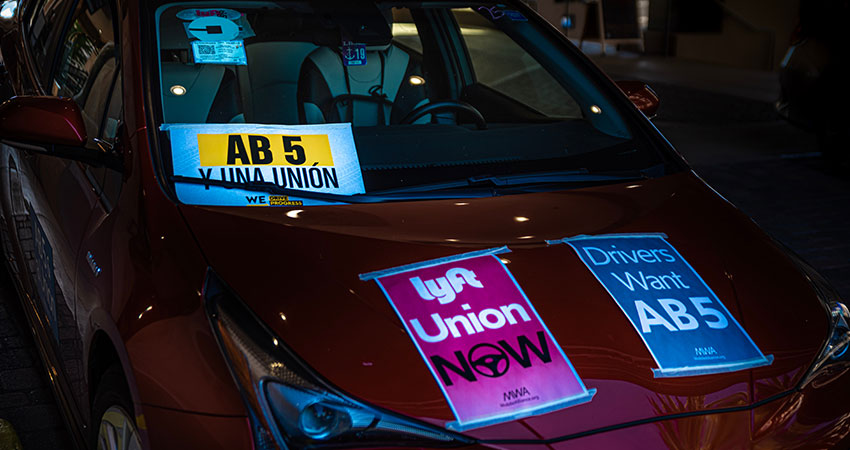A federal court judge issued an eleventh-hour restraining order on New Year’s Eve that temporarily exempts 70,000 truck drivers from the Jan. 1 implementation of California’s new gig worker law AB5, after a legal challenge from a trucking group.
The law, which alters worker classification for millions and upsets the economics of companies relying on gig workers, is also facing legal challenges from groups and companies seeking exemptions, including Uber, Lyft, DoorDash and Postmates, and freelance journalists. Uber and Postmates in particular are saying AB5 is an unconstitutional attack on workers’ rights.
According to the San Francisco Chronicle, the New Year’s Eve ruling from U.S. District Judge Roger Benitez was in response to a challenge from the California Trucking Association. The CTA contends that AB5 was preempted by a 1994 federal statute that prohibits states from making laws affecting the price, route or service of freight-hauling motor carriers. A hearing is scheduled for Jan. 13.
AB5 is even causing some truckers and trucking companies to leave the state as it seriously impacts their livelihood, according to FreightWaves.
Drivers and other workers among the hundreds of thousands of independent contractors in California will for the first time be eligible for benefits like health insurance, overtime, paid medical leave and a $12 minimum wage.
Many professions are exempt from the law because they set or negotiate their own rates, communicate directly with customers and make at least twice minimum wage, according to the San Francisco Chronicle. These include doctors and lawyers, real estate agents and marketing professionals.
Parcel consultant Jerry Hempstead noted how AB5, and the stay, could impact FedEx Ground and Home Delivery as both use contract drivers for local parcel deliveries.
“Granted they have arms’ length agreements and the contractors are responsible for withholding taxes, social security and unemployment,” Hempstead said. “I think they are in the clear, but there has been much litigation on whether the contractors are employees or not.”
UPS this year started having seasonal temp delivery drivers use their own vehicles, often enraging full-time Teamster drivers, but they are temporary employees, not contractors.

